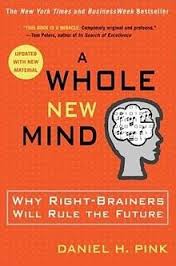If Internet has opened up many new opportunities and opened the way for Zuck-style leadership and Googlesque game rooms (see right), the competitive pressures for many senior management teams in “traditional business” seem to encourage a pavlovian return to “old” school management practices. In the face of the ‘openness’ of the Internet, the risks of social media, the transparency of information, the speed of communication and a 24/7 existence, there are those managers who prefer to clamp down more than open up. It’s almost as if performance is inconsistent with openness.
Short-term versus long-term management
What is interesting — or perhaps outright surprising — about old school management is that it is not necessarily the monopoly of older managers. Today’s middle and higher tier managers, brought up under the guidance of more classic old school managers, will often model the behavior of their “successful” elders. In a competitive environment where short-term results are the only real measure of success, the fist hammering, order-barking management style tends to gain quicker immediate returns. Such manners are well considered by the top brass, because it’s the only kind of management that they themselves practiced. In a kinder description, it would be called being driven. In a less kind way, one might call it monstrous obsession. But, at what expense?
New school leadership
One of the great issues for top management is that not only does one need to respond to shareholder pressure, one must manage one’s own career. These two forces drive a wedge between the performance-driver and the humane environment. Yet, I maintain that there is a way for management to succeed in towing the line between short-term performance and what I might broadly call “human” or humane leadership. The way I would characterize this “new school” leadership style would be a combination of the following attitudes:
- to listen intently
- to be genuine — even when upset
- to set clear, reasonable and measurable objectives
- to take the time to explain why
- to operate by emphasizing the positives and being constructive about the negatives
- to hire and groom talent who can be better than oneself
- to behave in a way that one’s mother would be proud…
What’s in it for a leader to take such a path? First and foremost, I fundamentally believe it is healthier for oneself. Secondly, it is bound to make for a better work environment and more committed employees. Too often, I have seen such hostility in the workplace creating enormous pain and inward destruction. Thirdly, when well implemented, results will follow.
New leadership mindset
There are three conditions for this new leadership mindset to work, in my opinion, over the long haul:
- The mission and values of the company/brand are clearly expressed and lived by the employees
- The boss exemplifies, if not models, the mission and values
- The organization keeps a flexible mindset and continues to evolve organically with size and time.
A whole new mind…set
Taking a page out of Dan Pink’s wonderful book, A Whole New Mind, I believe that the leaders who are best equipped to manage in today’s fast-paced, changing if not chaotic environment, are both left- and right-brained. Knowing that these terms are somewhat misleading, the idea is for leaders to be on the one hand creative, empathetic and conceptual, while also being analytical, bold and decisive. {Click to Tweet}. This is no mean feat for a single individual, running a big ship. That is why a leader needs to construct an executive committee that compensates and balances out wherever the leader is less able.
Much as I am a firm believer in this way of leading, I often am taken aback by operational managers who firmly disagree with me. Based on their operational more cynical experiences, the notion is often deemed too idealistic, fraught with risks. The challenge seems to be that of fear of letting go and/or believing in the autonomy of one’s own team. They will gladly point to the excessive success of Steve Jobs and Jeff Bezos, both of whom are renowned for their vile leadership skills.
It feels, at times, that trying to create another leadership style is a losing battle. Perhaps, overturning old school management habits is only fighting the symptom, when the real issue is not having a brand with a superior mission and purpose. And, if the CEO doesn’t genuinely subscribe, it’s wholly unlikely that the remainder of the team will enjoy the ride.
Your thoughts and reactions are welcome!













I am always researching new management styles and discovered a book called “Wiki Management” by author Rod Collins(www.wikimanagementbook.com). It outlines in great detail a revolutionary new way of managing businesses that focus on collaborative effort and learning, rather than an antiquated notion of boss-employee relationships. I found your post quite interesting because your “new leadership mindset” follows what this book is promoting. “A Whole New Mind” is something I will definitely add to my TBR list.
Rod Collins stresses that most managers and business owners neglect to use their richest, most untapped resource, “the collective knowledge of their own people.” And this is so true! The idea of the boss being the most intelligent person in the room is oftentimes ludicrous and nothing would benefit a company more than using the boss as a facilitator! The bulk of the book is devoted to stories and practices of this successful new management model. I think this would be a successful management style for anyone in the real world today! :)
I am always researching new management styles and discovered a book called “Wiki Management” by author Rod Collins(www.wikimanagementbook.com). It outlines in great detail a revolutionary new way of managing businesses that focus on collaborative effort and learning, rather than an antiquated notion of boss-employee relationships. I found your post quite interesting because your “new leadership mindset” follows what this book is promoting. “A Whole New Mind” is something I will definitely add to my TBR list.
Rod Collins stresses that most managers and business owners neglect to use their richest, most untapped resource, “the collective knowledge of their own people.” And this is so true! The idea of the boss being the most intelligent person in the room is oftentimes ludicrous and nothing would benefit a company more than using the boss as a facilitator! The bulk of the book is devoted to stories and practices of this successful new management model. I think this would be a successful management style for anyone in the real world today! :)
This was a fascinating post and I really enjoyed reading it. Thank you. I would really like to read A Whole New Mind so I’ll be looking out for that one. I have just read Wiki Management from Rod Collins and that was a real eye opener. It has made me question for how long will old-school vs new-school even be an option for big business.
Wiki Management was such a wonderfully written, insightful book and I highly recommend it. http://www.optimityadvisors.com/WikiManagement/
Thanks again for this great post.
This was a fascinating post and I really enjoyed reading it. Thank you. I would really like to read A Whole New Mind so I’ll be looking out for that one. I have just read Wiki Management from Rod Collins and that was a real eye opener. It has made me question for how long will old-school vs new-school even be an option for big business.
Wiki Management was such a wonderfully written, insightful book and I highly recommend it. http://www.optimityadvisors.com/WikiManagement/
Thanks again for this great post.